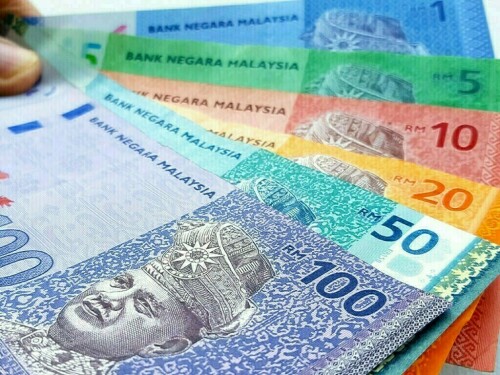Asian Currencies Strengthen Amid Trade Tension Uncertainty
Emerging Asian currencies experienced gains on Tuesday as investors divested from the US dollar, influenced by the lack of conclusive signs pointing towards reduced global trade friction. The Malaysian ringgit and Taiwan dollar both ascended to levels near their highest in six months.
The Malaysian ringgit, which has appreciated by more than 3% year-to-date, increased by 0.6%, reaching its peak since late October. Similarly, the Taiwan dollar rose by 0.6%, attaining its highest valuation since November of the previous year.
Malaysia’s producer price index (PPI) showed a decline of 1.9% in March, a stark contrast to the 0.3% increase the month before. This development is anticipated to intensify pressure on the nation’s central bank to consider lowering interest rates at their forthcoming policy meeting.
The US dollar struggled to rebound from recent significant losses, continuing to edge downward as investors grapple with the ambiguity of evolving US trade strategies.
Ringgit and Rupiah Lead Gains
Further complicating the outlook, Treasury Secretary Scott Bessent suggested in an interview that de-escalating tariffs was primarily China’s responsibility.
Market observers are also keenly awaiting the release of global factory activity reports and a series of economic indicators scheduled for release this week. These include US employment figures, gross domestic product data, and core inflation metrics, which may provide initial insights into the real impact of the current trade disputes.
Analyst Insights
According to Kyle Rodda, a senior financial market analyst at Capital.com, a key concern for markets is accurately pricing the US dollar, and the dollar’s overnight dip reflects market positioning ahead of the week’s extensive data releases.
Among other emerging Asian currencies, the Philippine peso, Thai baht, and Singapore dollar generally traded positively.
The Bank of Thailand (BOT) is scheduled to convene on Wednesday for its monetary policy meeting. Expectations are that it will implement a quarter-percentage-point rate cut to bolster the country’s decelerating economic expansion.
Asian equity markets saw increases as investors shifted away from safe-haven assets such as gold and the US dollar.
Share values in Singapore and Taiwan rose by 0.2% and 0.6%, respectively, while those in India and Jakarta increased by 0.2% and 0.5%, respectively.
Singapore is preparing for elections on Saturday, with market participants closely monitoring for assurances of policy stability in the financial hub.



Comments (0)
No comments yet. Be the first to comment!
Leave a Comment